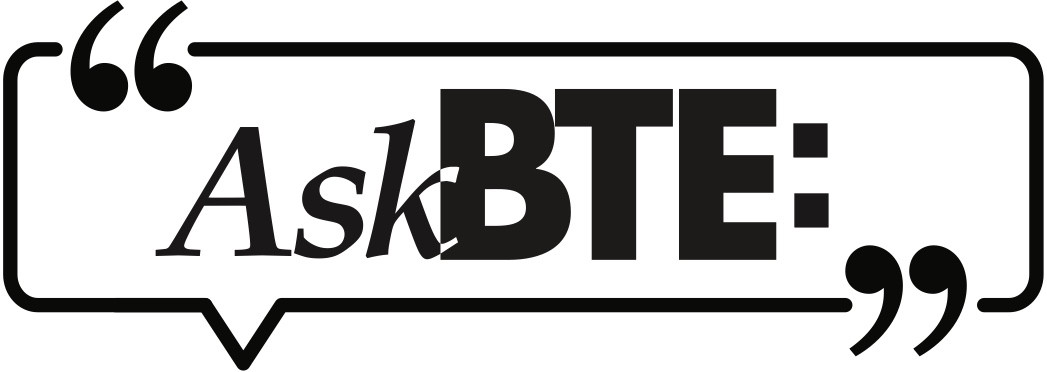The Bonvaenture is just one of an untold number of hotels and other meeting venues that have spent recent months desperately seeking business by offering a wide range of discounts to planners in the face of the most severe industry downturn since the 1930s.
From the largest chains — including Hilton, Hyatt, Marriott, Omni, Starwood and Wyndham — to the smallest boutique properties with a handful of meeting rooms, there are rebates on a client's master bill, relaxation of attrition clauses in contracts, lower rates on sleeping rooms, and free coffee breaks and meeting rooms. At many properties, the cost of a meeting package is 10 to 20 percent lower than it was in recent years.
"The pricing from a buyers' standpoint is about as attractive as I've ever seen it," says Mike Taylor, president of the New Jersey Hotel & Lodging Association and general manager of the Heldrich Hotel & Spa in New Brunswick, a Benchmark Hospitality property.

Looking At The 'New Normal'
So how is the hoteliers' eagerness to please working? The answer is reasonably well for some meeting venues, but only marginally so — or not at all — for many others. Both planners and suppliers are concerned that a "new normal" level of less business travel overall has set in. Most of them don't expect that to change unless the economy improves significantly and decimated meeting budgets increase.
"We're going to book meetings based on our business needs," says Doug Weeks, president of the Association of Corporate Travel Executives and director of global sourcing and travel for the Booz & Company consulting firm. "I don't think lowering the price of meeting expenses has, from my perspective, generated increased use."
Taking the biggest hits in the lodging business, as has been widely reported, have been luxury properties that had hosted corporate retreats or incentive groups, many for financial-sector companies, on the books. Politicians' and the media's pillorying of American International Group (AIG) and other companies for lavish spending while getting taxpayer bailouts created a firestorm of criticism that infected the entire hospitality industry.
Even industry veterans who have seen recessions come and go have been surprised by the depth of this one. According to PKF Consulting's national outlook, as of mid-March, revenue-per-available-room was expected to be down almost 14 percent and profits down 30 percent for the average hotel this year compared with 2008.
"We expected things to be slower than last year," says Jody Wallace, president and CEO of the EMCVenues planning firm. "But never have I seen such a decline.
"We're hovering at about 25 to 28 percent" less business compared with a year ago, she continues, adding "And that's what I'm hearing across the board."
At the same time, Wallace adds, for companies still holding some meetings, an endless stream of discount offers from hotels and conference centers — "I must get 50 e-mails a day," she says — have helped some planners make venue decisions. Planners are not changing the cities where they meet but "those types of special offers are what's driving the decision," she says.
Time To Weigh The Options
Other meeting and incentive planners are finding clients very slow or still unwilling to start booking meetings again just because properties are offering lower costs and more amenities thrown into a meetings package. Clients are "really looking at all the options available to them," says Mary McGregor, vice president for account development at BCD Travel's meetings and incentives division. "Decisions are being driven by the value, and customers really are looking for us to do our homework."
But, McGregor adds, most BCD customers who decided as early as last fall to reduce the number and size of their meetings aren't making any changes yet. "We don't see them adding meetings back because there are really good deals to be had," she says.
By early April, hoteliers and planners were finding that the flood of meeting cancellations and double-digit declines in occupancy was slowing down as hope for economic stability grew. The shrinkage in group and transient business has been enough, however, to convince some industry consultants that the effect is likely to last for years.
"I think this is a permanent structural change, and I don't think it's a short-term blip," says Bjorn Hanson, the longtime hotel consultant with Pricewater houseCoopers who now teaches at New York University. "I think this will change behavior in the long run. Companies will get used to conducting business with fewer meetings and less extravagant meetings."
Search For Stability
As gloomy as the outlook may be, examples can be found across the country of hotels and conference centers where special offers, coupled with vigorous sales efforts, are managing to keep business fairly stable. Some of the best results can be found at urban, non-resort properties that don't have a luxury brand name and have cultivated relationships with companies and associations in their immediate vicinity.
Omni Hotels was hit by numerous cancellations from October through December, but the pace has slowed down considerably since, says vice president of sales Tom Faust. The chain devised what it named the ZERO Attrition Package, which waives attrition fees for all new contracts for meetings of up to 150 room nights that are booked by June 30 and consumed in 2009. Helping Omni is the fact that most of its properties are not super-luxurious, the category that has suffered the most from the "AIG effect."
"In this type of environment, we look like the perfect fit," says Caryn Kboudi, Omni's vice president of corporate communications.
Other major chains have their own "stimulus packages" aimed at buyers. Marriott International is offering 2 percent discounts on bookings of 100 or more rooms. Starwood Hotels & Resorts Worldwide will give a 3 percent discount on the total room bill and 10 percent off on food-and-beverage costs. Wyndham Hotels & Resorts has a menu of discounts for groups of 76 rooms or more, including 10 percent off food-and-beverage.
Keep The Focus On Work
At two urban properties managed by Hyatt Hotels & Resorts, a meetings package that includes a 6 percent rebate on bookings of 10 or more rooms is generating interest among planners who have become meticulous shoppers, officials say. Having a reputation as "a city that works," such as Chicago, is also helping, they add.
"Everybody is very prudent and wants to make very conscientious decisions," says Michael Panko, director of sales and marketing at the Hyatt Regency McCormick Place. "If they're holding a meeting, is it necessary? If a meeting hasn't been cancelled, they're making sure it's in a venue that's about doing business."
Down the road in St. Louis, Brian Morris, director of sales and marketing at the Hyatt Regency Riverfront, says that direct mail and e-mail follow-ups to the corporate parent's rebate offer has generated half a dozen solid leads for business-group bookings. The 910-room hotel, a former Adam's Mark that Hyatt took over a year ago, doesn't believe it's been a victim of the "AIG effect" because it's not a resort. "The word boondoggle isn't in our business mix here in St. Louis," Morris adds.
Meeting properties with resort, spa or golf in their names may be having the toughest time booking business, but an "Atrium Conference Planning Package" is helping at a North Carolina hotel that uses all three words. The package, at the Embassy Suites Concord-Charlotte Golf Resort and Spa, for groups of 10 or more booked by Nov. 30, includes three meals a day, coffee breaks, meeting rooms and guest rooms, and other services for $199 per person per night.
Terry Crawford, general manager of the John Q. Hammons Hotels' property, which has 42,000 square feet of meeting space, says the package is being seriously considered by half a dozen groups who know that the hotel is not only affordable but hardly your typical resort. Its golf course is a public facility that the hotel manages.
"The reason you come here is not to play golf," Crawford says. "We're not a destination resort."
A resort may be helped as well if it has relatively low profile in an otherwise pricey area, such as the Jupiter Beach Resort, on the Atlantic 12 miles north of Palm Beach, FL. Its "Worry Free Stimulus Package" is attracting interest by planners — but for shorter meetings with fewer attendees than recent years, and with shorter booking windows, says sales and marketing director Diane D'Amico.
"The biggest fear the planners have right now is, 'If I book something for September, what's my life going to be like?'" she says.
The Right Combination
Ultimately, if hoteliers are going to grow their group business in this difficult environment, keeping service standards high is another necessity.
Kathleen Lyons, general manager of the Embassy Suites Hotel — The Commerce Center, in Richmond, VA, says that group business is off 20 percent compared with last year, requiring an innovative meetings package and many more in-person sales calls on prospects by herself and her staff.
The hotel also will need more customers like Peter Mellon, principal sales engineer for bearings manufacturer Timken Company, who plans several sales-training meetings a year. After checking out conference rooms at several hotels, Mellon found the right combination of reasonable costs, excellent conference facilities and a "we will do anything for you" attitude at the Embassy Suites.
"Their people were extremely responsive," Mellon says. "They worked with me. They were flexible. I can't speak highly enough about these people."








